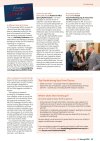You are using an out of date browser. It may not display this or other websites correctly.
You should upgrade or use an alternative browser.
You should upgrade or use an alternative browser.
Action for ME (UK) fundraising (AfME)
- Thread starter Andy
- Start date
Andy
Senior Member (Voting rights)
You can also support them by playing a weekly lottery.
"For every £1 you play each week, you'll receive a unique 6-digit lottery number.
Every Friday, a winning number is drawn at random. Match your digits to win up to £25,000!"
ETA: Edited to insert correct link.
"For every £1 you play each week, you'll receive a unique 6-digit lottery number.
Every Friday, a winning number is drawn at random. Match your digits to win up to £25,000!"
ETA: Edited to insert correct link.
Last edited:
InitialConditions
Senior Member (Voting Rights)
You can also support them by playing a weekly lottery.
I think you used the wrong link Andy. Lottery here: https://www.actionforme.org.uk/support-us/other-ways-to-support-us/play-the-unity-lottery/
InitialConditions
Senior Member (Voting Rights)
If you fancy a chance to win money while 'donating' then the Action for ME Spring Raffle 2025 runs 24 April 2025 - 11 July 2025.
Tickets can be purchased online, with "6 prizes up for grabs with the first prize starting at £1000 and 5 more of £100!".
Not a bad idea really. I have purchased some raffle tickets.
InitialConditions
Senior Member (Voting Rights)
ME Acion are the ones behind SequenceME right? Sounds like donating to them has a chance of being useful
I wonder if thing works outside the UK.
This is Action For ME, one of the two main UK charities, not ME Action. I definitely feel more comfortable donating to AfME than the ME Association these days.
Yann04
Senior Member (Voting Rights)
Yep thats what i meant. edited my post cuz brain fog. (Also what an idea ro name two charities so deceptively similarly lol)This is Action For ME, one of the two main UK charities, not ME Action. I definitely feel more comfortable donating to AfME than the ME Association these days.
Andy
Senior Member (Voting rights)
Thanks, have edited my post to correct link.I think you used the wrong link Andy. Lottery here: https://www.actionforme.org.uk/support-us/other-ways-to-support-us/play-the-unity-lottery/
I think you used the wrong link Andy. Lottery here: https://www.actionforme.org.uk/support-us/other-ways-to-support-us/play-the-unity-lottery/
Thanks for this - I've just got round to signing up.
DigitalDrifter
Senior Member (Voting Rights)
What about Invest In ME?I definitely feel more comfortable donating to AfME than the ME Association these days.
InitialConditions
Senior Member (Voting Rights)
I have donated to IiME before via fundraisers and sponsored events. Being volunteer-led means all money raised goes to research but it also means they are stuck as a small charity and IMO they really need help to overhaul their identity/media.What about Invest In ME?
For historical reasons they also do not seem to want to colloaborate with other charities, whereas personally I do not believe having multiple charities each running their own small research programmes is the optimal approach.
Last edited:
Dolphin
Senior Member (Voting Rights)
Danny is doing amazing fundraising and is right to try to inspire people with similar capabilities to do the same. I'm not sure it's accurate "The majority of research funding for all diseases comes from charities". I think when I was looking in dementia and stroke material, admittedly in the previous decade, they get more from the state than they raise privately? For dementia, it's probably because of economic cost / global targets to find treatment ...I'm not sure why for stroke, whether they sector struggles to fundraiser or whether the state thinks that it needs extra. It also might be because charity costs are going to towards support vs research, I don't know. It's interesting that a disease like Parkinson's, affecting half our numbers, as well as raising a lot of money and getting a lot of state money - (£100/p/yr) also are able to use privately raised money to pay for things like Parkinson's nurses.
Last edited:
Andy
Senior Member (Voting rights)
From an email.
"We are less than 2 weeks away from The Big Give Christmas Challenge – can you help us raise £135,000 to improve lives and accelerate understanding for anyone affected by ME?
Donate online between 2nd and 9th December to see your gift DOUBLED.
Last year, the money raised during our campaign helped us to:
· Respond to over 1,100 requests for information and support from adults and children with ME. 91% had increased understanding of their rights and options following contact with us.
· Continue to support younger researchers in the ME field through our Future Leaders Network, and build on the initial results of our DecodeME study through our Genetics Centre of Excellence research partnership with Edinburgh University.
· Provided 215 bursaries to people on low incomes, helping them to access specialist healthcare including Doctors and Physiotherapists.
· Launch an Essay Competition for Medical Students across the UK, helping ensure the next generation of Doctors understand ME and can better support their patients with ME.
We’ll be announcing the winners of our essay competition during the Big Give campaign week. Follow us on social media (links below) to see how it improved understanding of ME for those students who took part.
With your help, this year we can reach our target and continue our work to improve lives and accelerate understanding – now and in the future.
For now, save the date and we will contact you with more information about our Big Give Christmas Challenge soon, or keep an eye on our social media channels for more updates.
Best wishes from the Action for ME team."
"We are less than 2 weeks away from The Big Give Christmas Challenge – can you help us raise £135,000 to improve lives and accelerate understanding for anyone affected by ME?
Donate online between 2nd and 9th December to see your gift DOUBLED.
Last year, the money raised during our campaign helped us to:
· Respond to over 1,100 requests for information and support from adults and children with ME. 91% had increased understanding of their rights and options following contact with us.
· Continue to support younger researchers in the ME field through our Future Leaders Network, and build on the initial results of our DecodeME study through our Genetics Centre of Excellence research partnership with Edinburgh University.
· Provided 215 bursaries to people on low incomes, helping them to access specialist healthcare including Doctors and Physiotherapists.
· Launch an Essay Competition for Medical Students across the UK, helping ensure the next generation of Doctors understand ME and can better support their patients with ME.
We’ll be announcing the winners of our essay competition during the Big Give campaign week. Follow us on social media (links below) to see how it improved understanding of ME for those students who took part.
With your help, this year we can reach our target and continue our work to improve lives and accelerate understanding – now and in the future.
For now, save the date and we will contact you with more information about our Big Give Christmas Challenge soon, or keep an eye on our social media channels for more updates.
Best wishes from the Action for ME team."
It would be great to have more information on this. I assume this is providing access to AfME's own medical service? I think that medical service needs a bit more scrutiny - there should be transparency about what their clinicians are promoting. Is that information available?· Provided 215 bursaries to people on low incomes, helping them to access specialist healthcare including Doctors and Physiotherapists.
If AfME provides a summary of their clinical approach and stands up to criticise BACME, I would be keen to donate to them.
OrganicChilli
Senior Member (Voting Rights)
It would be great to have more information on this. I assume this is providing access to AfME's own medical service? I think that medical service needs a bit more scrutiny - there should be transparency about what their clinicians are promoting. Is that information available?
I can't speak for the physiotherapists, but the doctors diagnose patients using the NICE guideline. The one I spoke to was big on POTS, MCAS and post covid blood clotting and recommended antihistamines and blood thinners as a blanket approach - something JE said he would raise with Sonya.
No CBT and GET, but very keen on diagnosing comorbidities that I don't have.
InitialConditions
Senior Member (Voting Rights)
The GP I saw was new to the service. I'm not even sure they are still there as they're not listed on the AfME website. It was not worthwhile, apart from to get a detailed letter about my circumstances. The GP was interested in holistic care and basically had nothing to offer. No interest in prescribing medications or helping diagnose PoTS/OI, but I've heard the other doctos there are different (as evidenced in the post above). I ended up writing a constructive complaint.It would be great to have more information on this. I assume this is providing access to AfME's own medical service? I think that medical service needs a bit more scrutiny - there should be transparency about what their clinicians are promoting. Is that information available?
If AfME provides a summary of their clinical approach and stands up to criticise BACME, I would be keen to donate to them.
They have counsellors and physios as well as GPs.


